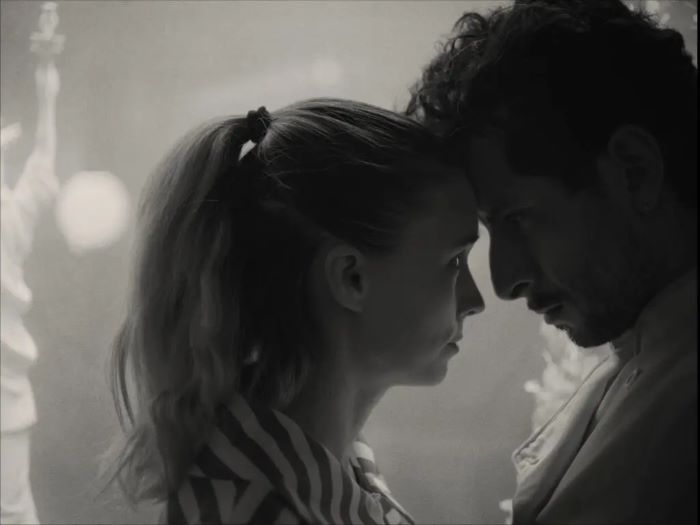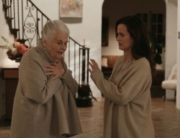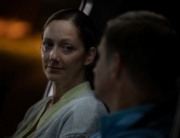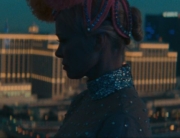You might not find a better symbol of the division between labor and consumer than a bustling restaurant, especially in a cosmopolitan city. There, the path from the front to the back of the house can be seen as a descent into the underworld. Mexican director Alonzo Ruizpalacios has adapted a play by Arnold Wesker (The Kitchen) and elevates his claustrophobic vision with various cinematic techniques. Ruizpalacios has been crafting a diverse filmography (Güeros, Museo, A Cop Movie), and this American-Mexican co-production is probably his best film to date. Here, he takes advantage of resources and talent closer to Hollywood productions.
The enveloping long, black-and-white takes explore the excellent production design of a labyrinthine kitchen, where the director manipulates his characters at will, like an omniscient god. (It’s also partly an ensemble piece deserving of the term “Altmanesque.”) The Times Square restaurant, the Grill, is first seen through the eyes of 19-year-old Estela (Anna Díaz), a recently arrived Mexican immigrant. She has followed the recommendation to contact Pedro (Raúl Briones), who is from her hometown, at where he works as a cook.
Before plunging fully into the unstoppable chaos and tacit hierarchical system, the film takes a brief introductory tour through the city as Estela tries to find the restaurant. After asking for directions, a man rambles on in English, and she smiles politely, thanking him for words she cannot understand. Luckily, the supervisor (Eduardo Olmos) who hires her speaks Spanish (he’s the son of immigrants and never hesitates to remind his staff that he is American) and gives her the job on the spot: The management turns a blind eye to hiring undocumented workers. Walking through the premises, we discover people crammed into tight spaces, representing different nationalities, languages, and races. The monochromatic uniformity reduces them all to the same: desperate and unhappy, searching for something better.
If there are clear protagonists here, they would be Pedro and the White waitress Julia (Rooney Mara), who maintain a not-so-secret romance, expressed in scarce moments of respite. In their first conversation, they pretend to introduce themselves as if they don’t know each other, only for it to be revealed as an erotic game. At one point, they sneak off to the freezer to have sex (the only scene in color, though predominantly blue). When Julia learns she’s pregnant, she considers an abortion, although Pedro wants to be a father and have a life with her. For him, a marriage could also represent a golden opportunity to secure his legal status.
Pedro is an antihero to some extent, and for most of his coworkers, he’s an irredeemable jerk, constantly playing pranks, provoking fights for no reason, and humiliating women (except Julia). He’s a Mexican macho in every sense, embodying the concept of toxic masculinity. Despite being a good cook—something that doesn’t matter much in a place where quantity trumps quality—the chef (Lee Sellars) warns him that he’s three strikes away from being fired. Suffice it to say, Pedro has enough demerits.
At the same time, an internal investigation is underway to identify who’s behind the theft of a missing deposit, an amount suspiciously similar to what Julia needs for her abortion. Matters will only get worse. Besides the internal squabbles, broken soda machines flood the floor, orders are not delivered on time, and the unpredictable Pedro is always on the verge of exploding and unleashing his frustrations. Food as something tempting and pleasant only takes center stage in two key scenes: Pedro prepares a perfect sandwich for Julia using special cilantro sent by his mother through Estela, and he later cooks a lobster dish for a homeless man (earning him one of the strikes). This place offers no room for gourmet delicacies, only food destined for palates that expect to be served quickly. If there’s anything that defines hell, it’s the absence of beauty.
La Cocina creates a small, suffocating universe, and keeps you on the edge of your seat, unable to look away from a train about to derail. Disasters can be appetizing and entertaining from a distance.
<?div>

















Leave A Comment